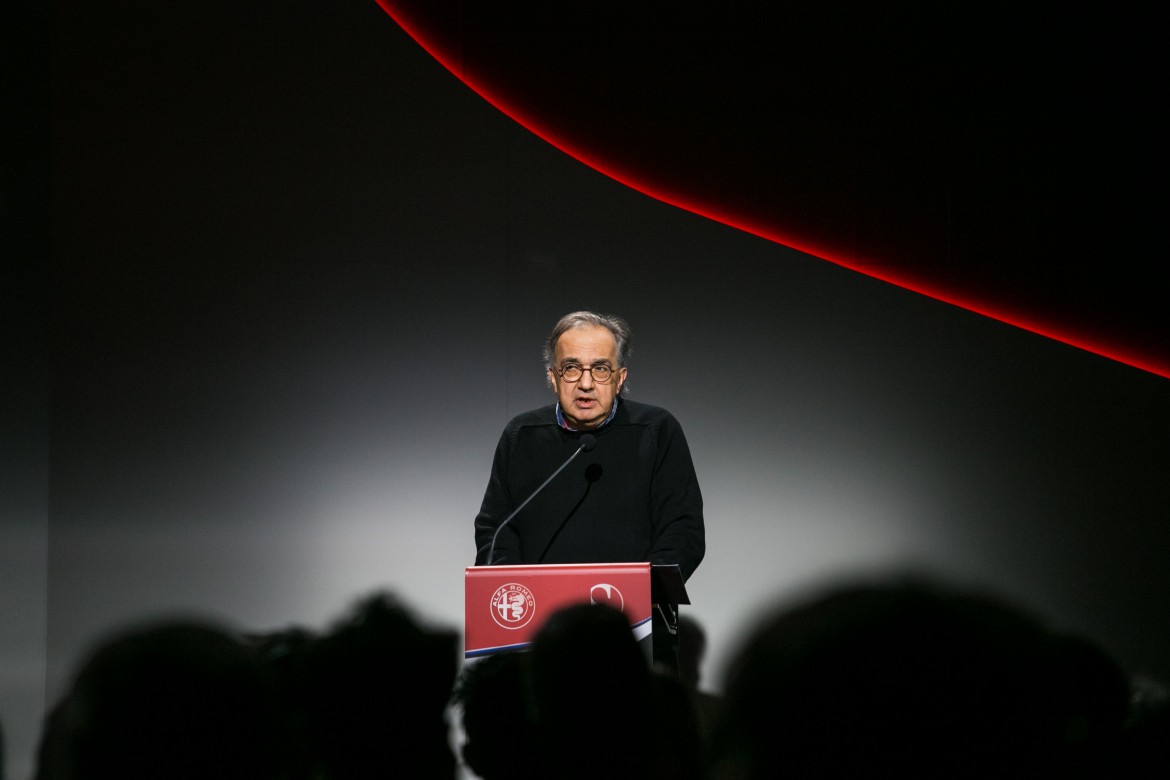Interview
In the shadow of Sergio Marchionne’s legacy, a dark future for Fiat Chrysler
We spoke with Giuseppe Berta, a friend and colleague of Sergio Marchionne, the former CEO of FCA who died Thursday. He said that Marchionne has not left a business plan, only a vision. The ‘best alternative,’ Berta says, is to sell FCA to the Chinese.

Editor’s note: Sergio Marchionne died Wednesday after complications from surgery. This interview was conducted earlier this week and published in the Italian edition on Tuesday.
“I want to tell you right away that I found Marco Revelli’s editorial very intelligent and I don’t agree with the criticisms against your newspaper,” said Giuseppe Berta, the greatest historian of industry in Italy. He teaches at Bocconi University and knows Sergio Marchionne. “He made fun of me by saying that before making decisions he read my comments, not like Elkann who instead always tells me that he doesn’t like them.”
Professor Berta, you know Marchionne personally. Who is Marchionne?
Apart from his undisputed financial capacity, he was a huge negotiator. He managed to get out of the agreement with General Motors as soon as he became CEO, so he managed to buy Chrysler with Obama’s money. He was a single man in command who never created a team. And this will have heavy repercussions for the future of FCA.
Mike Manley was his favorite successor. How did the Agnelli family manage this sudden change?
It has handled it very badly. For days I have known that Marchionne’s condition had worsened—I’m also treating myself for a lymphoma and I wanted to write to him to share the experience—and so the situation had been at risk for some time. For this reason, knowing that the choice of Manley had been made, they had to provide a period of support, of management of the transition. But now they’ll pay everything because markets all over the world were used to Marchionne’s inventions; of Manley we have only seen some videos of him while presenting a Jeep.
In the meantime Altavilla—responsible of FCA Europe—left FCA. A bad blow for Italy.
It was taken for granted that he would do so. He had already been badly treated at Investor Day on June 1 and simply drew the consequences. For FCA, the problem is now very serious and starts from the industrial plan left by Marchionne.
In what sense? The signatory trade unions feel guaranteed by the many new models envisaged.
In the sense that rather than a business plan Marchionne has presented an industrial scenario. It has simply listed objectives and enumerated brands and models: a real business plan must specify where and when the models will be produced. The most important analysts called it “dysfunctional” because it lacked synergies. Also with regard to investments we are in a delicate situation: to make up for the delay on the electricity would have required figures much higher than 9 billion.
FCA’s technological retardation of the electric sector is very heavy compared to the Japanese and German brands. Less than a year ago, Marchionne claimed that it was more profitable to focus on methane.
Marchionne was not a fanatic of cars like so many in this world. In this sense, the assessment was wrong and it will now be up to Manley to try to recover.
The alliance issue is the other unresolved issue for FCA.
Until the end of 2014 it was possible to form an alliance with a big American, perhaps even launching a hostile OPA. Today the technological change is so fast that it no longer makes sense, you can only make limited agreements. Or ally yourself with a giant like Google or Tesla, but then you’re the arm and they’re the mind.
Marchionne did not want to do so.
I’ll tell you an anecdote. We were in the midst of the clash with FIOM, December 2010, before the Mirafiori referendum. I asked him: “But is it necessary to do all this operation against workers’ rights?” He replied that “It’s imposed by the American alliance, mere stakeholders want factory performance to be comparable and European contract conditions to be better.”
Are you telling me that the cut in rights is Obama’s fault?
No, I am telling you that globalization has come into play and has affected the outcome. Though not totally: at that point Marchionne aimed to take Opel away from GM, but it was the German veto that prevented him. Merkel, Lander and the IgMetall union joined in putting up a wall claiming that they made better machines. This is unthinkable in Italy, where no government is interested in the car industry.
From that moment on, however, you have always maintained that the FCA axis had strongly shifted to America.
Certainly, and it continues to be true. For Italy, the best alternative to relaunch production would be for the Agnellis to sell the Fiat brand (500, Panda) to a Chinese manufacturer. Otherwise, I don’t see a positive outcome.
Originally published at https://ilmanifesto.it/futuro-grigio-per-gli-agnelli-leredita-di-sergio-e-un-macigno/ on 2018-07-24
